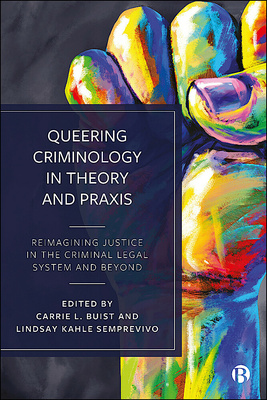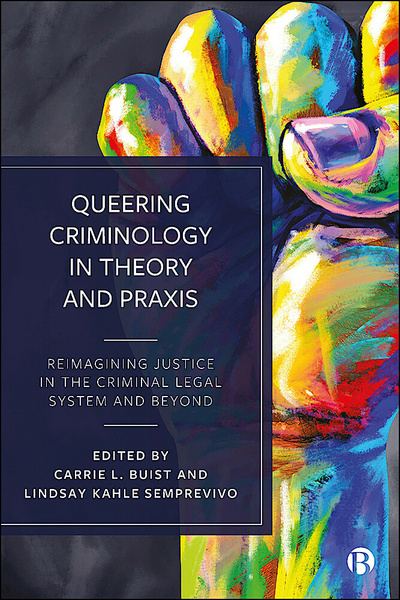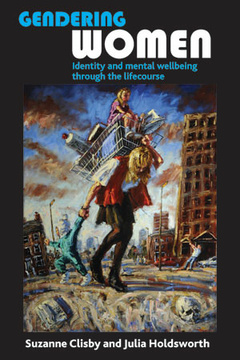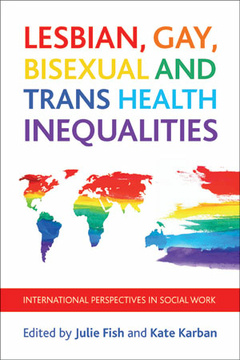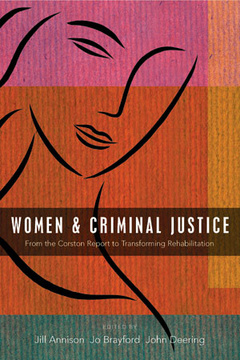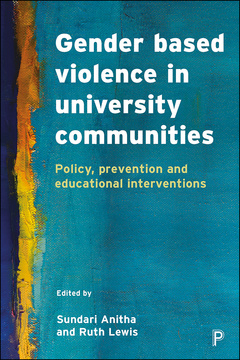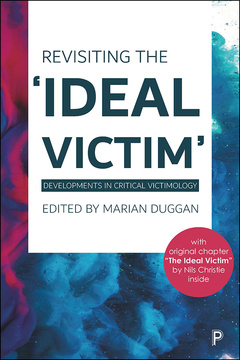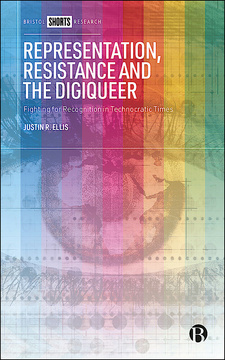Queering Criminology in Theory and Praxis
Reimagining Justice in the Criminal Legal System and Beyond
Edited by Carrie Buist and Lindsay Kahle Semprevivo
Published
13 Jun 2023Page count
334 pagesISBN
978-1529210705Dimensions
234 x 156 mmImprint
Bristol University PressPublished
29 Mar 2022Page count
334 pagesISBN
978-1529210699Dimensions
234 x 156 mmImprint
Bristol University PressPublished
29 Mar 2022Page count
334 pagesISBN
978-1529210729Imprint
Bristol University PressPublished
29 Mar 2022Page count
334 pagesISBN
978-1529210729Imprint
Bristol University PressThis accessible book introduces the key concepts and theoretical developments of queer criminology and explains what they mean for modern criminal justice frameworks and practitioners.
The book sets out experiences of the LGBTQ+ population as victims, offenders and professionals in legal systems in the US and internationally and explores what they mean for elements of those systems including police, courts, corrections and victims’ services. It is both a useful reference point for academics, students and professionals and a guide to how queer criminology can be theoretically applied and practically implemented in the worlds of policing, courts, corrections, and victims' services.
“This volume is an ambitious endeavor to unify research and understanding about LGBTQ+ people within, and the contributions of queer theory to, criminal law enforcement in the US and elsewhere. It is an indispensable reference for anyone interested in comprehending these important matters.” Criminal Law and Criminal Justice Books
“'Queering Criminology' is an essential resource for those looking to queer the discipline through their research, their studies or their teaching.” Brian Frederick, University of Portsmouth
"This impressive anthology breaks down silos and brings together diverse authors whose research and praxis provide an evidence-based, accessible and practical roadmap for improving the experiences of system-involved Queer folx." Emily Lenning, Fayetteville State University
Carrie L. Buist is Associate Professor at the School of Criminal Justice, Grand Valley State University.
Lindsay Kahle Semprevivo is Teaching Assistant Professor of Criminology at West Virginia University.
Introduction: Towards Freedom, Empowerment, and Agency: An Introduction to Queering Criminology in Theory and Praxis: Reimaging Justice in the Criminal Legal System and Beyond – Carrie L. Buist and Lindsay Kahle Semprevivo
1. Gender- and Sexuality-Based Violence Among LGBTQ People: An Empirical Test of Norm-Centered Stigma Theory – Meredith G.F. Worthen
2. Queer Pathways – Michael K. Winters
3. Queer Criminology and the Destabilization of Child Sexual Abuse – Dave McDonald
4. Queer(y)ing the Experiences of LGBTQ Workers in Criminal Processing Systems – Angela Dwyer and Roddrick A. Colvin
5. ‘PREA Is a Joke’: A Case Study of How Trans PREA Standards Are(n’t) Enforced – April Carrillo
6. Queerly Navigating the System: Trans* Experiences Under State Surveillance – Rayna E. Momen
7. Sex-Gender Defining Laws, Birth Certificates, and Identity – Jon Rosenstadt
8. Effects of Intimate Partner Violence in the LGBTQ Community: A. Systematic Review – Illandra Denysschen and Rosalind Evans
9. Health Covariates of Intimate Partner Violence in a National Transgender Sample – Victoria Kurdyla, Adam M. Messinger, and Xavier L. Guadalupe-Diaz
10. Serving Transgender, Gender Nonconforming, and Intersex Youth in Alameda County’s Juvenile Hall – Alexandria Garcia, Naseem Badiey, Laura Agnich Chavez, and Wendy Still
11. Liberating Black Youth Across the Gender Spectrum Through the Deconstruction of the White Femininity/Black Masculinity Duality – Angela Irvine-Baker, Aisha Canfield, and Carolyn Reyes
12. ‘I Thought They Were Supposed to Be on My Side’: What Jane Doe’s Experience Teaches Us About Institutional Harm Against Trans Youth – Vanessa R. Panfil and Aimee Wodda
13. The Role of Adolescent Friendship Networks in Queer Youth’s Delinquency – Nayan G. Ramirez
14. ‘At the Very Least’: Politics and Praxis of Bail Fund Organizers and the Potential for Queer Liberation – Luca Suede Connolly and Rose M. Buckelew
15. A Conspiracy – Lucilla R. Harrell and S. Page Dukes
16. LGBTQ+ Homelessness: Resource Obtainment and Issues With Shelters – Trye Mica Price and Tusty ten Bensel
17. The Color of Queer Theory in Social Work and Criminology Practice: A World Without Empathy – Rebecca S. Katz
18. Camouflaged: Tackling the Invisibility of LGBTQ+ Veterans When Accessing Care – Shanna N. Felix and Chrystina Y. Hoffman
19. Barriers to Reporting, Barriers to Services: Challenges for Transgender Survivors of Intimate Partner Violence and Sexual Victimization – Danielle C. Slakoff and Jaclyn A. Siegel
Conclusion: What Does It Mean to Do Justice? Current and Future Directions in Queer Criminological Research and Practice – Lindsay Kahle Semprevivo and Carrie L. Buist







